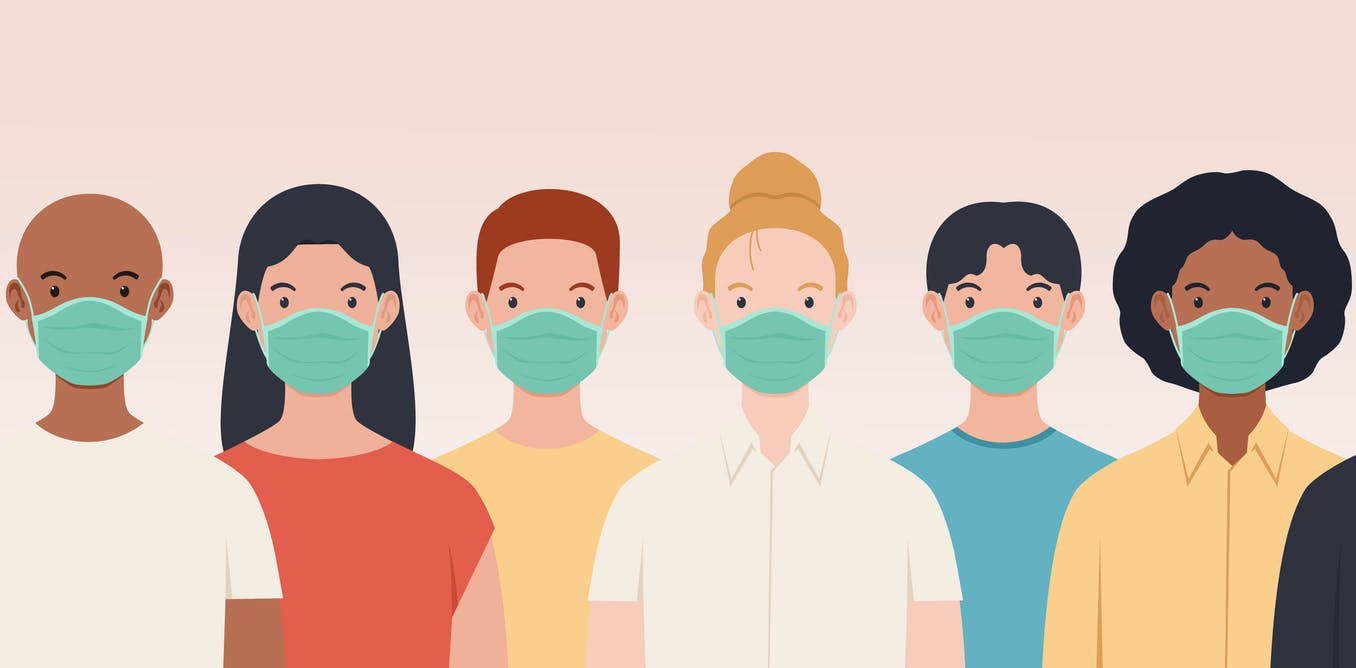Coronavirus affects people differently – some infected develop life-threatening disease, while others remain asymptomatic. And a year after COVID-19 emerged, it’s still unclear why.
To try and answer this question, researchers have started looking at the genetics of people who get COVID-19, and identifying links between developing the disease and variations in specific parts of our DNA. This raises the possibility that some of what makes people susceptible to COVID-19 lies in their genes.
This wouldn’t be surprising. Genetic variation plays a role in susceptibility to a number of diseases, from HIV to malaria to TB. Researchers know this because they hunt for variations of interest by comparing people’s entire DNA sequences – their genomes – to see whether certain variations coincide with certain disease outcomes. Such analyses are called genome-wide association studies.
For COVID-19, these studies have uncovered two stretches of DNA with variations of interest: one on chromosome 9 and one on chromosome 3.
Blood types are a mystery
The region on chromosome 9 is the ABO gene locus, which determines our blood type. Following the first wave of COVID-19 in spring 2020, studies began to investigate whether blood type was linked to disease susceptibility, particularly in patients with O or AB blood groups. However, the early evidence was contradictory. While some studies suggested a possible link, others stated that once infected, a person’s blood type doesn’t affect their disease outcomes at all.
Since then, a more consistent pattern has started to emerge: people with blood type A now seem to be more at risk than those with blood type O. More recent research suggests a lower risk of severe disease for blood type O, even going as far as to suggest that this blood group has a protective effect. Additional studies have postulated that blood type A increases risk of infection (though some of these are pre-prints, meaning they have yet to be scrutinised by other scientists).
This conflict between older and newer evidence is most likely due to the relatively small number of cases analysed. As the number increases, we’ll have more confidence in any findings.
Blood type has also been associated with COVID-related respiratory failure. A study of 1,600 Spanish and Italian COVID-19 patients found that people with blood type O had a lower chance of respiratory failure compared with those who had other blood types. When compared with everyone else, people with blood type A had 1.5 times the chance of respiratory failure.
This finding is supported by a paper that analysed the results of seven separate studies, which together looked at data from nearly three million people – including more than 7,500 COVID-19 patients. It found that COVID-positive people are more likely to have blood group A, whereas with blood group O the risk of COVID-19 infection is reduced. This conclusion was backed up by a further study.
Lastly, there’s also a large Canadian study that found that people with blood type O are at lower risk of infection. The difference was only slightly lower, with the risk of COVID-19 infection being 12% lower for blood type O when compared against all other types. The study also showed that people with blood type O had a 13% lower risk of severe disease or death compared to everyone else.
So why might blood type be having an effect on COVID-19? This research recalls studies from the 2002–2004 Sars outbreak – also caused by a coronavirus – which hinted at a possible reduced risk for type O. This earlier research theorised that antibodies – proteins in our blood that help fight infections – present in type O blood may inhibit the Sars virus from getting inside cells. But this hasn’t been proven.
Similarly, whether blood type definitely provides some protection against COVID-19 – and if so, whether antibodies in certain blood types are behind this – remains unclear. It does look like there is an association between blood type and disease susceptibility, but more research is needed to know exactly how the two are related.
To Read More: Click Here
References:
Vikki Rand and Maria O’Hanlon (February 26, 2021). Do genetic differences make some people more susceptible to COVID-19? TheConversation. Retrieved from https://buff.ly/3aUjX79




